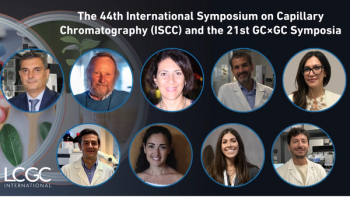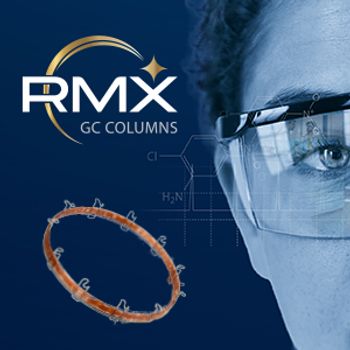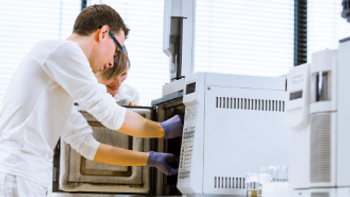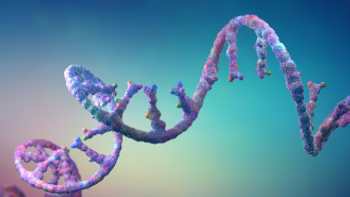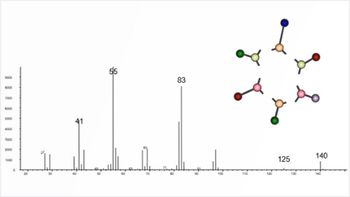
- November/December 2023
- Volume 36
- Issue 10
- Pages: 416
Untargeted Analysis in Petroleomics
LCGC spoke to Leandro Wang Hantao from the University of Campinas in São Paulo, Brazil, about his work investigating the influence of ion management parameters on the data produced by comprehensive gas chromatography–high-resolution mass spectrometry (GC×GC–HRMS) equipped with a fourier transform-orbital ion trap mass analyzer, and his investigation into employing channel occlusion for sample preparation in untargeted analysis in petroleomics.
LCGC spoke to Leandro Wang Hantao from the University of Campinas in São Paulo, Brazil, about his work investigating the influence of ion management parameters on the data produced by comprehensive gas chromatography–high-resolution mass spectrometry (GC×GC–HRMS) equipped with a fourier transform-orbital ion trap mass analyzer, and his investigation into employing channel occlusion for sample preparation in untargeted analysis in petroleomics.
Q: You have recently investigated the influence of ion management parameters on the data produced by comprehensive gas chromatography– high-resolution mass spectrometry (GC×GC–HRMS) equipped with a Fourier transform orbital ion trap mass analyzer (1). What were your findings?
A: There were two major findings. The first one regards the data structure because we found that this particular instrument generates data with non-integer acquisition rates, but the acquisition rate is not constant throughout the GC run. This means that the acquisition rate is dependent on the ion current that is reaching the ion management system. If you have a peak eluting from your GC column, you’ll get a higher acquisition rate, but lower rates are observed when there is only baseline. That therefore challenges us when we’re dealing with pixel-based chemometrics. The first step was writing code in Matlab to resample the data without creating artefacts such as distorted peaks. We typically associate mass resolving power with mass accuracy. However, what we found is that with this particular instrument, regardless of the mass resolving power that you’re setting on your method, you’re still able to maintain the same mass accuracy. This is more important because we’re trying to assign molecular formulas with more confidence. While the mass resolution is not as important, we’re not as concerned because we’re working with comprehensive 2D-GC.
Q: You have also published a paper discussing a proof-of-concept investigation into employing channel occlusion for sample preparation in untargeted analysis in petroleomics (2). How did this research come about?
A: This lead was brought to me by my student, Julian, who used to work at a petrochemical company. They would use urea crystals to trap n-alkanes, and they would perform isotope ratio analysis to determine geochemical parameters. The protocol that they used to do this was very time-consuming and there were a lot of manual steps. We were able to identify the largest source of errors, which is the crystallization process, and we started looking for ways to automate the sample preparation, and to have more control over the crystallization. In this context, microfluidics was the best alternative, so we talked to a few collaborators that work with microfluidics, and 3D printing. We started to evaluate numerous materials that were able to withstand the use of organic solvents and be able to deliver the crystallization rates that we needed in order to perform the sample prep.
References
(1) de Oliveira, A. M.; Teixeira, C. A.; Hantao, L. W. Advanced Tuning of the Ion Management Parameters in GC×GC-HRMS Using a Fourier Transform Orbitrap Mass Analyzer for Pixel Based Data Handling and Multivariate Analysis. Anal. Methods 2022, 14, 1646. DOI:
(2) Castiblanco, J. E. B.; Quero, R. F.; de Oliveira, A. M.; de Jesus, D. P.; Hantao, L. W. Improving Selective Channel Occlusion of Complex Hydrocarbons and Fatty Acid Methyl Esters in Urea Crystals By Using an Expendable 3D-Printed Microfluidic Device for Sample Preparation in Untargeted Petroleomics. Anal. Chim. Acta 2021, 1160, 338425. DOI:
About the Interviewee
Articles in this issue
about 2 years ago
The Evolution of LC Troubleshooting – DegassingNewsletter
Join the global community of analytical scientists who trust LCGC for insights on the latest techniques, trends, and expert solutions in chromatography.

